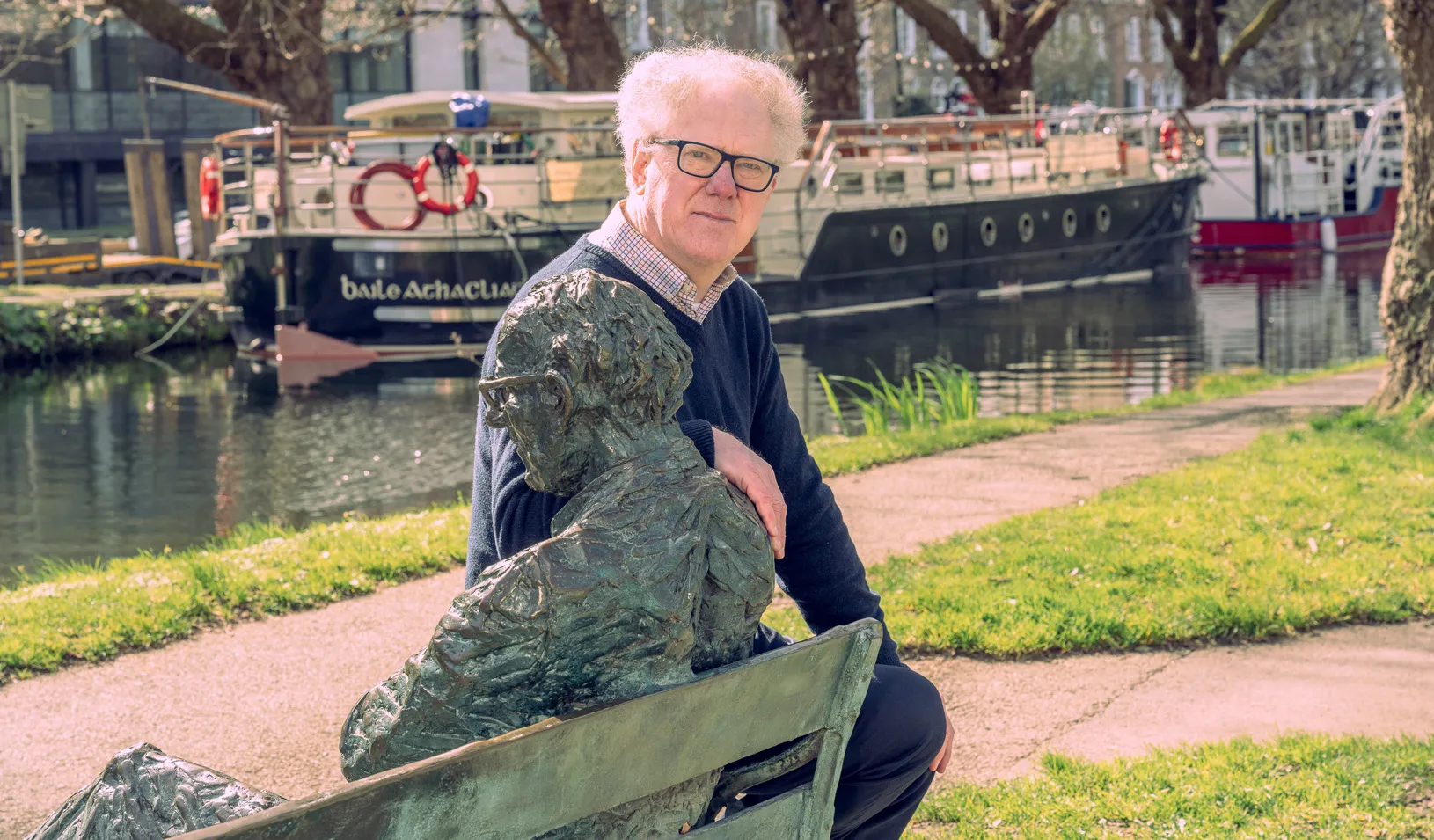April 23, 2024
It was late April 1996. My brilliant classmate, Dr. Ina Bendis, MS ’96, pulled me aside and asked if we could have a chat. We stood under an imposing cedar tree on the outer corner of the Quad near the business school.
Editor’s Note
In this ongoing series from Stanford Business magazine, we ask Stanford GSB alumni to reflect on one of their biggest challenges and what they learned from it.
Ronan McGovern, MS ’96, is a strategy manager, real estate, at Allied Irish Banks. He is writing a memoir, Twice Exceptional.
“Ronan,” Ina started, “I’ve been observing you for some time in class, and I think you might have ADHD. Have you heard that term before?”
I had no idea what she meant. “No,” I blurted out. “What’s that?”
“It stands for attention deficit hyperactivity disorder. Basically, your mind has a greater processing power than most people’s, but you have a harder time keeping it in check.”
I didn’t know what to say, but something began to fall into place. Looking back now, it seems so obvious. At home and school, I was giddy, impulsive, and always in trouble. As my father recalled, I’d been “a disturber of the peace.” I can’t tell you how many times my name was connected to phrases such as You should have paid more attention. He struggles with attention.
The factor most commonly associated with ADHD, of course, is lack of attention. This aspect manifests itself in occasionally contradictory ways. Early in my career, I would hyperfocus, full of anxiety that I might not deliver a good outcome, and spend hours on a project, forgetting to eat, change my clothes, or sleep. When a professor at the GSB asked a question or asked for comments, I often would raise my hand at shoulder-disjointing speed and patter out a series of remarks which, to the general observer, would have seemed loosely related at best.
Following Ina’s astute observation, I underwent a series of tests. The day the report arrived, I opened the manila envelope with trembling hands. The summary was undramatic and full of dry technical phrases. It was helpful to learn about my condition from the neutral perspective of a medical evaluation: Ronan exhibited numerous fidgety behaviors, such as shaking his leg. When asked questions, Ronan looked off to the side to enhance his attention and minimize distractibility. It didn’t feel like a judgment, in the way that my report cards or employee examinations had; it was just like a systems engineering assessment.
I was lucky to get a diagnosis of ADHD at the age of 35. That might seem quite late, but even today, despite significant breakthroughs, diagnosis and treatment are slow and difficult. It came at an important time. I was one month from graduating and was trying to figure out my next step. My diagnosis helped ground the emotions that were impeding my ability to make decisions.
The poet Mary Oliver said, “Things take the time they take.” Thanks to a classmate’s insightfulness, I have been able to discover and follow my purpose in life — bringing awareness of the strengths and struggles of neurodivergent people to organizations and corporations and working to make these environments more inclusive for everyone.
Ronan wishes to thank Mary-Jane Holmes, who edited this essay and provided guidance in writing it.
For media inquiries, visit the Newsroom.



